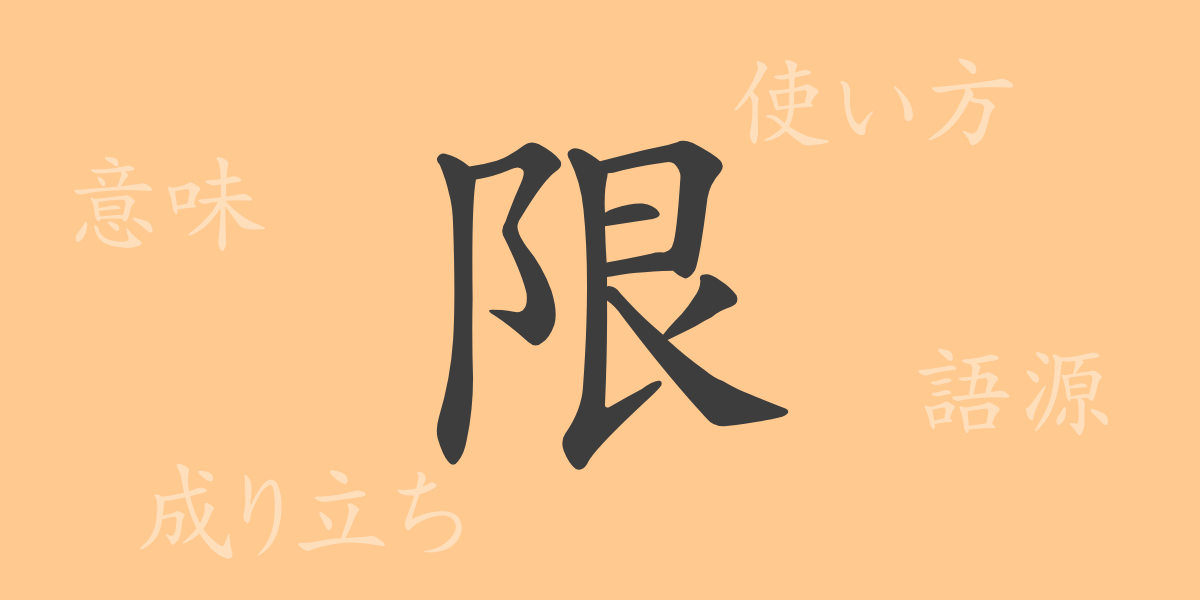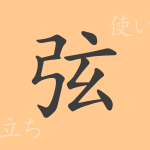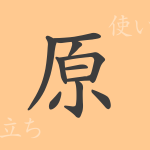In the realm of Japanese written culture, 常用漢字(じょうようかんじ/jouyou kanji) form the foundation for smooth communication. Among them, the kanji “限(げん/gen)” is a crucial character frequently used in our daily lives and business settings. This article delves into the origin, meanings, and usage of “限(げん/gen),” as well as the idioms and expressions that incorporate this character, exploring its profound charm.
Origin of 限(げん/gen)
The kanji “限(げん/gen)” originates from ancient China, composed of the elements “阜(こざとへん/kozato-hen)” and “艮(ごん/gon).” “阜(こざとへん/kozato-hen)” signifies land or embankment, while “艮(ごん/gon)” represents stopping or cessation. Together, these components imply “setting the boundaries of land,” embedding the meanings of “boundary” and “limit” in the character “限(げん/gen).”
Meanings and Usage of 限(げん/gen)
The kanji “限(げん/gen)” is commonly used in terms such as “限界(げんかい/genkai)” (limit), “制限(せいげん/seigen)” (restriction), and “期限(きげん/kigen)” (deadline). These words are vital concepts for defining the scope of matters, used in various contexts including business, law, and everyday conversations.
Reading, Stroke Count, and Radical of 限(げん/gen)
Understanding the readings and structure of the kanji “限(げん/gen)” provides deeper insight into its usage.
- Readings: The On’yomi (音読み/おんよみ) reading is “ゲン(げん/gen),” and the Kun’yomi (訓読み/くんよみ) readings are “かぎ.る(kagi.ru),” “かぎ.り(kagi.ri),” and “かぎ.らず(kagi.razu).”
- Stroke count: “限(げん/gen)” consists of 9 strokes.
- Radical: The radical of “限(げん/gen)” is “阜(こざとへん/kozato-hen).”
Idioms, Proverbs, and Phrases Using 限(げん/gen)
There is an abundance of idioms, proverbs, and phrases in Japanese that include the kanji “限(げん/gen).” Here are some examples:
- 無限(むげん/mugen): “Limitless,” meaning without end.
- 限定(げんてい/gentei): “Limited,” meaning to set boundaries or conditions.
- 期限(きげん/kigen): “Deadline,” the set period within which an action or event is allowed.
- 限界(げんかい/genkai): “Limit,” the furthest point something can reach.
- 限りなく(かぎりなく/kagirinaku): “Boundlessly,” used to express something very close to infinite or extremely much.
Conclusion About 限(げん/gen)
The kanji “限(げん/gen)” is indispensable in our language for indicating the scope and conditions of matters. From its origin to various usages, including idioms and proverbs, “限(げん/gen)” plays a crucial role in broadening the range of Japanese expression. Understanding the meanings of this single character enhances the precision of communication, allowing us to enjoy richer Japanese expressions.

























